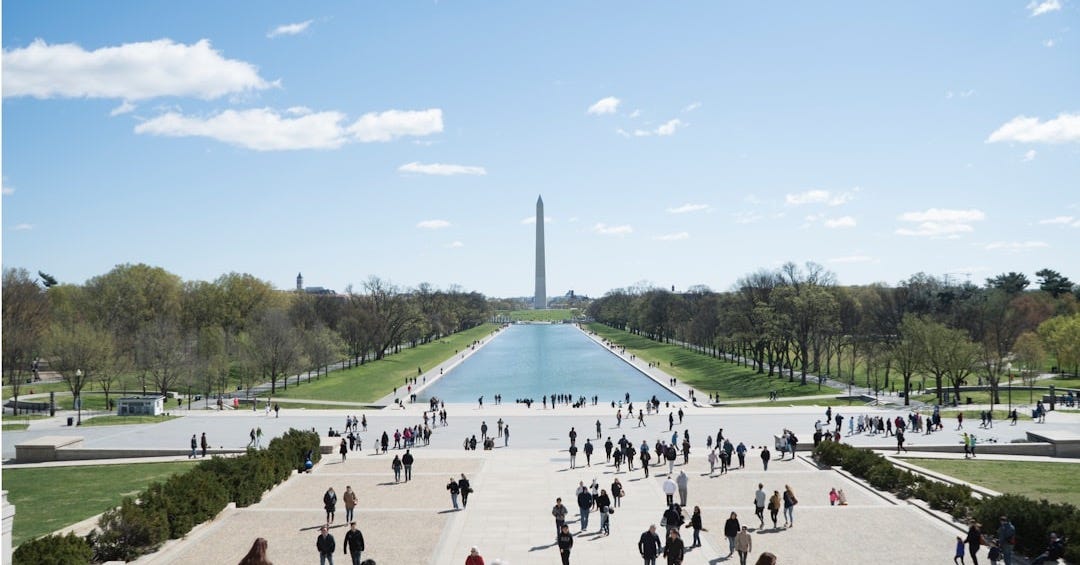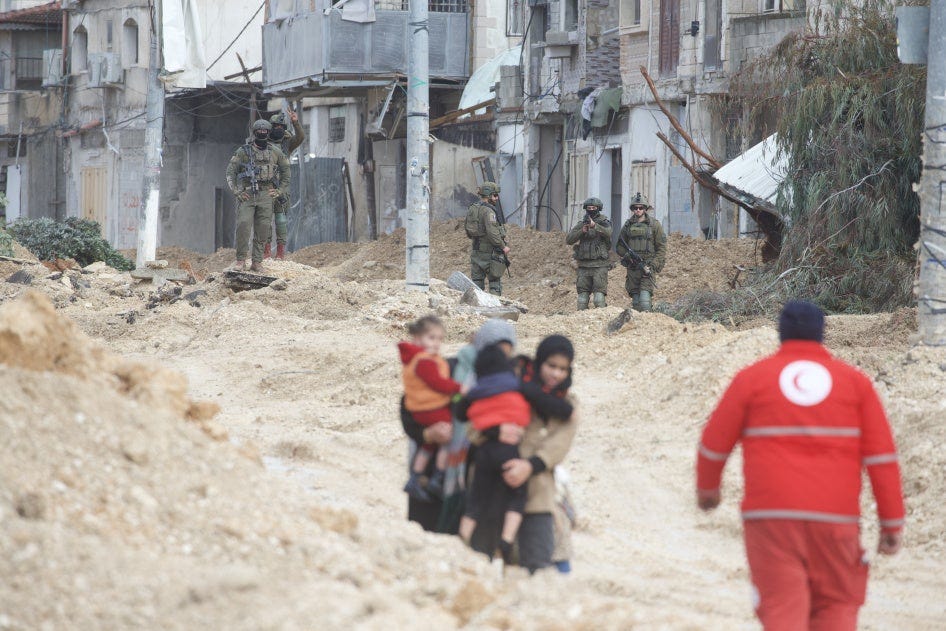10 Things Global News - 21st November 2025
Interesting and important news from around the world
Zelensky Weighs US Peace Plan Amid Pushback
China Sharpens Taiwan Invasion Options
US Rebukes South Africa Over G20 Boycott Claims
Judge Blocks Trump’s National Guard Deployment in D.C.
Human Rights Watch Says West Bank Expulsions Are War Crimes
COP30 Faces Revolt Over Fossil Fuel Roadmap
India Defends Delay On COP30 Climate Pledge
Sudan’s War Deepens Amid Struggle Over Land and Gold
U.S. Broadens Military Scope After Cartel Designation
Deadly Floods Sweep Central Vietnam
On this day ….
On 21 November 1783, two Frenchmen M. Pilâtre de Rozier and M. d’Arlandes made the first untethered hot-air balloon flight over Paris, demonstrating that sustained human flight was technically possible.
Their ascent marked a shift in scientific ambition and opened new possibilities for observation, communication and, eventually, aviation.
The achievement captured public imagination at a time when technological leaps were rapidly changing how societies understood distance and mobility.
How quickly would modern expectations about the world have evolved without this early proof of human flight?
Volodymyr Zelensky said Ukraine is ready to work with Washington on a US-backed peace plan while European allies warned against concessions that echo Moscow’s demands. After meeting the US army secretary Dan Driscoll in Kyiv, he confirmed receiving a draft that would require Ukraine to cede the entire Donbas region, give up Crimea, and limit its armed forces to 600,000 troops. According to US officials, the proposal was prepared with input from Russian and American envoys and supported by Donald Trump.

European ministers stressed that peace cannot amount to capitulation, as a result highlighting resistance to terms seen as punishing for Kyiv. Meanwhile, senior Ukrainian figures condemned the plan as “absurd” and said it mirrored Russia’s early-war conditions.
Discussions between Zelensky and Trump are expected in the coming days, with US diplomats emphasising an accelerated timeline. The initiative emerges as Ukraine faces battlefield pressure and a domestic corruption scandal.
Sources: South China Morning Post, The Guardian
China is developing the ability to strike Taiwan with little warning as it expands amphibious capacity and intensifies military pressure. A Reuters investigation tracked civilian cargo ships and ferries practising beach landings in Guangdong, with satellite images showing vehicles unloaded directly onto sand using ramps and a floating pier system.
This approach, military experts said, could support simultaneous landings across multiple beaches and compensate for China’s limited number of dedicated amphibious ships.
Meanwhile, a US Senate commission warned that the PLA could impose a blockade within hours and requires only minimal preparation time for an attack. As a result, the report said, the United States and its partners can no longer assume extended warning periods. Beijing has increased near-daily operations around Taiwan, including more than 3,000 incursions into its air defence zone this year.
Taiwan’s defence ministry said it maintains continuous oversight of these civilian vessels and has developed contingency plans.
Sources: Asahi Shimbun, Taipei Times
Tensions escalated between Washington and Pretoria after White House officials accused South African president Cyril Ramaphosa of misrepresenting the US position on its boycott of the G20 summit. Ramaphosa had said the United States appeared to be reconsidering its decision at the “late hour,” calling the signal a positive change.
However, White House press secretary Karoline Leavitt rejected the claim, saying the president did not appreciate Ramaphosa “running his mouth” and insisting Washington would not join any talks.
A US official said only the acting ambassador would attend the ceremonial handover, not the summit discussions. As a result, Pretoria pushed back at pressure not to issue a joint declaration, arguing the G20 would not be “bullied” into limiting its agenda. Meanwhile, Ramaphosa maintained that the United States “needs to be here” as the world’s largest economy, while South Africa hosts the bloc’s first summit on the continent.
Sources: Associated Press, Times of India
A US federal judge has ordered the Trump administration to end its months-long National Guard deployment in Washington, D.C., ruling that the operation unlawfully intrudes on the city’s authority. Judge Jia Cobb said the federal takeover harmed the district’s sovereign powers, although she paused her order for 21 days to allow an appeal.
The deployment followed an executive order declaring a “crime emergency” and brought thousands of Guard personnel from the district and eight states into the capital.

The ruling is part of a wider series of legal challenges to troop deployments in several cities. In contrast, the White House said Trump acted within his lawful authority, arguing the operations were needed to protect federal assets and support crime control. Meanwhile, Washington’s attorney general said the deployments threaten local autonomy and inflame tensions. Lawyers warned that normalising troop use for domestic law enforcement risks setting a dangerous precedent for unchecked presidential power.
Sources: NPR, South China Morning Post
A new Human Rights Watch report says Israel’s mass removal of Palestinians from three West Bank refugee camps amounts to war crimes and crimes against humanity. The organisation found that around 32,000 people were expelled from Jenin, Tulkarem and Nur Shams during “Operation Iron Wall” in early 2025, with soldiers issuing abrupt orders for families to leave, storming homes and demolishing buildings. HRW said residents were denied shelter, assistance and the right to return.

The Israeli military said the operations targeted imminent threats and were intended to preserve freedom of movement in areas used by armed groups. However, HRW’s researchers said displaced residents were still barred from returning months later, with widespread destruction documented through satellite imagery. In contrast, Israeli officials argued the campaign had reduced terrorism and was conducted in line with international law. The report calls for senior Israeli leaders to be investigated and held accountable.
Sources: The Independent, Human Rights Watch
More than 30 countries have warned they will not support Brazil’s draft outcome at COP30 after the text omitted any roadmap for phasing out fossil fuels. The letter, signed by nations across Europe, Latin America, Asia and the Pacific, said the proposal “does not meet the minimum conditions” for a credible agreement. Meanwhile, a fire at the summit venue in Belém forced a suspension of talks, adding pressure as negotiations approach their scheduled end.
Brazil has faced resistance from petro states and major fossil fuel consumers, including Saudi Arabia, Russia and India, who oppose the roadmap. By contrast, supporters argue the measure is essential for a “just, orderly and equitable” transition and reflects commitments made under the 2023 global stocktake.
As a result, tensions have escalated, with some governments threatening to block the final text unless the roadmap is reinstated.
Sources: Le Monde, The Guardian
India faced renewed scrutiny at COP30 after confirming it will submit its updated climate plan by the end of December, missing the summit’s expected timeline. The country is among a small group yet to file new Nationally Determined Contributions, despite most UNFCCC members having already done so. However, Indian officials argued that developed countries must provide far greater financial support before developing nations can adopt more ambitious emissions targets.
The delay comes as assessments show India met a major goal on non-fossil electricity capacity ahead of schedule, yet continues to rely heavily on coal.
Meanwhile, analysts said the absence of a formal pledge could weaken India’s influence at COP30, even as it urges richer countries to commit “trillions, not billions” in climate finance. In contrast, India highlighted previous progress and said climate action must be backed by predictable funding.
Sources: BBC, Washington Post
Sudan’s civil war has intensified as the army and the Rapid Support Forces (RSF) fight for control of land, resources and strategic corridors across the country. The RSF’s capture of El-Fasher in late October underscored a wider shift in the balance of power, while millions of people remain displaced amid one of the world’s worst humanitarian crises. However, the conflict is also being shaped by competing interests in farmland, trade routes and the country’s vast mineral wealth.
Gold has become central to funding the war, as mining areas and smuggling networks help both sides sustain operations. Meanwhile, foreign ties continue to influence the battlefield: the army receives backing from Egypt, Saudi Arabia, Iran and Turkey, while the RSF benefits from the patronage of the United Arab Emirates. These networks have enabled weapons transfers and fuel supplies across regional borders, allowing each side to keep fighting despite heavy losses.

As a result, Sudan’s natural resources have become embedded in the conflict’s logic. The struggle for cropland, ports, oilfields and gold has reinforced incentives for continued violence, while external support has made a political settlement more elusive.
Sources: France 24, Al Jazeera
The United States has expanded its military options after designating Venezuela’s Cartel de los Soles a foreign terrorist organisation. U.S. officials allege the group works with the Venezuelan gang Tren de Aragua and accuse President Nicolás Maduro of leading it, an allegation he denies. However, the designation, which takes effect on Monday, gives the Pentagon wider scope as Washington increases pressure on Caracas.
Defense Secretary Pete Hegseth said the move “brings a whole bunch of new options,” while President Donald Trump said it allows the U.S. to strike Maduro’s assets although he has not decided whether to do so. Meanwhile, Trump has also said he remains open to talks, underscoring the mixed signals shaping U.S. policy. As a result, the shift comes alongside a significant military buildup in the region, including an aircraft carrier, fighter jets, Marines and surveillance aircraft.
Recent U.S. operations against alleged drug-trafficking boats have killed at least 83 people, drawing criticism from human rights groups.
Sources: Reuters, The Hill
Relentless rains have triggered severe flooding across central Vietnam, leaving at least 41 people dead and nine missing. The downpours, which exceeded 1.5 metres in several areas over three days, submerged more than 52,000 homes and cut power to around half a million households and businesses. Emergency teams report widespread damage across six provinces as heavy rain continues to fall.
The worst-hit areas include Hoi An, Nha Trang and major coffee-growing regions already struggling with earlier storms. Roads and bridges have been washed away, with Lam Dong province declaring a state of emergency after landslides severed key transport routes. Meanwhile, authorities have evacuated tens of thousands of residents as military and police units work to move stranded families to safety.
Natural disasters have caused more than $2bn in damage in Vietnam this year, underscoring the increasing impact of extreme weather across the country.












